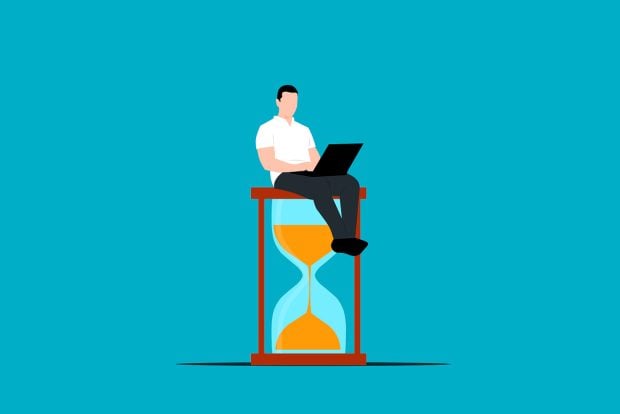Agricultural advice AI wins Canada’s Public Service Data Challenge

A plan to use AI system ChatGPT to support Canada’s agricultural sector triumphed in the Public Service Data Challenge Final last night, securing the backing of top officials and putting it firmly on the path to implementation.
“Congratulations to the winners!” said Canada’s chief data officer Stephen Burt, commenting that all four of the finalists’ presentations had been excellent. “The quality of the ideas across the board made it a very difficult decision,” he said. “All of these ideas, I think, have a lot of value if we can get them into delivery.” Burt added that he will work to “help you, from my perch here at Treasury Board, to get traction in your departments for your work”.
Under the Challenge, public servants of all disciplines, organisations and seniorities were invited to send in their ideas for how government could make better use of data, or to volunteer to join one of the interdisciplinary, cross-departmental teams formed to research and develop the most promising ideas. A judging panel comprising senior data specialists first picked a seven-strong longlist, then narrowed the field down to four at a ‘Dragon’s Den’-style Semi-Final in January. The remaining teams have since been further developing and refining their ideas, responding to the feedback and questions provided by the judges at the Semi-Final.
Facing the dragons
Introducing the Final, which was held yesterday in central Ottawa, André Loranger, assistant chief statistician at Statistics Canada and an advocate with the Data Challenge, commented that the program “has invited people to think about data in a new light, exploring how to mobilize, how to work with new partners, and how to leverage innovation to improve the lives of Canadians. It’s this inspiration to try something new that is driving the success of this program – not only for those who are joining us here today to make the final pitches, but for all of those who have stepped up and made a contribution along the way”.
Each of the four finalists then had ten minutes to present their idea, and 20 minutes to answer questions from the judges. The teams’ ideas covered a wide range of technologies and policy fields: alongside the ChatGPT tool, they presented plans to create a needs analysis tool for remote communities; use weather forecasting data to influence crop-spraying, reducing watercourse fertilizer pollution; and apply AI to locate fishing gear lost at sea, directing work to tackle plastic waste.
The winning idea, explained by idea originator Jay Conte and his team, involves replacing Agriculture and Agri-Food Canada’s (AAFC’s) existing services search function – which receives just 15,000 visitors annually – with a specially-trained version of ChatGPT. Named AgGPT, the team explained, the AI system has already been developed to the point where it can provide clear advice and answer follow-up questions. The team has worked with risk management experts to avert the risk of discrimination or bais, and trained AgGPT not to recommend specific commercial services.
Searching for inspiration
“The idea evolved over a number of months, starting with a hackathon back in December,” team member Steve Rennie, a director for data-driven technology at AAFC, told Global Government Forum. “We had the good fortune of having the Challenge coincide with the incredibly fast developments that we’ve seen in the AI space since last year.”

The Challenge program, Rennie explained, brought him together with AAFC colleagues including Conte, AI developer Rafael Moraes and senior data analyst Nicole Johnson, “and they brought their expertise and contacts, so it all grew very organically. It’s been really wonderful to see how well we’ve worked together and pitched in. I can’t tell you how many weekends and evenings we’ve spent on this over the last eight months or so, and it’s really rewarding to see the way it’s all come together”.
The tool will provide a model that can be used by other agencies and departments, said Rennie: “Our aim from the start has been to see how we can expand this beyond AAFC, and provide solid and credible information to Canadians.”
A catalyst for innovation
Participation in the Challenge, he added, has much hastened the development of Conte’s original idea. “It was able to grow from something that was very amorphous to a very specific tool that we’re able to build,” said Rennie. “And I think had we not had the Challenge as a backdrop to all this, really driving us forward, it may never have got to this stage. So I think that a lot of credit has to be given to the Data Challenge for helping to propel this to the point it’s at.”

Asked what help is required to see AgGPT implemented, Rennie replied that “a lot of the heavy lifting has been done, in that we already have a working model that does a very good job. What we need now is more support and buy-in, opening doors for us to start working with other departments to really expand the use of this tool beyond being an agricultural chatbot; to really revolutionise the way that the government is able to provide information to Canadians. If we can get that support, the sky’s the limit”.
Wrapping up the event, Kathryn Stevenson, a director at Statistics Canada and a member of the organising team, said that the Challenge provides a “testimony to the power of giving people an opportunity to contribute in government,” and thanked the program partners – Statistics Canada, Natural Resources Canada, Global Government Forum and Microsoft – along with all the judges, champions and advocates, and those who’d put forward ideas or volunteered to join a team. “Keep on innovating. Keep reaching out and using your networks,” she told the finalists. “We’re all here to support you as you go forward.”
For more information on the Public Service Data Challenge, visit our dedicated website – where you can read about the longlisted and shortlisted ideas, check out the champions, judges and advocates, and learn more about the program model.























Call me old school, but when testing out ChatGPT I submitted the same questions / key words and got different results each time. I hope they’ve trained it to think through its answers and to be consistent.